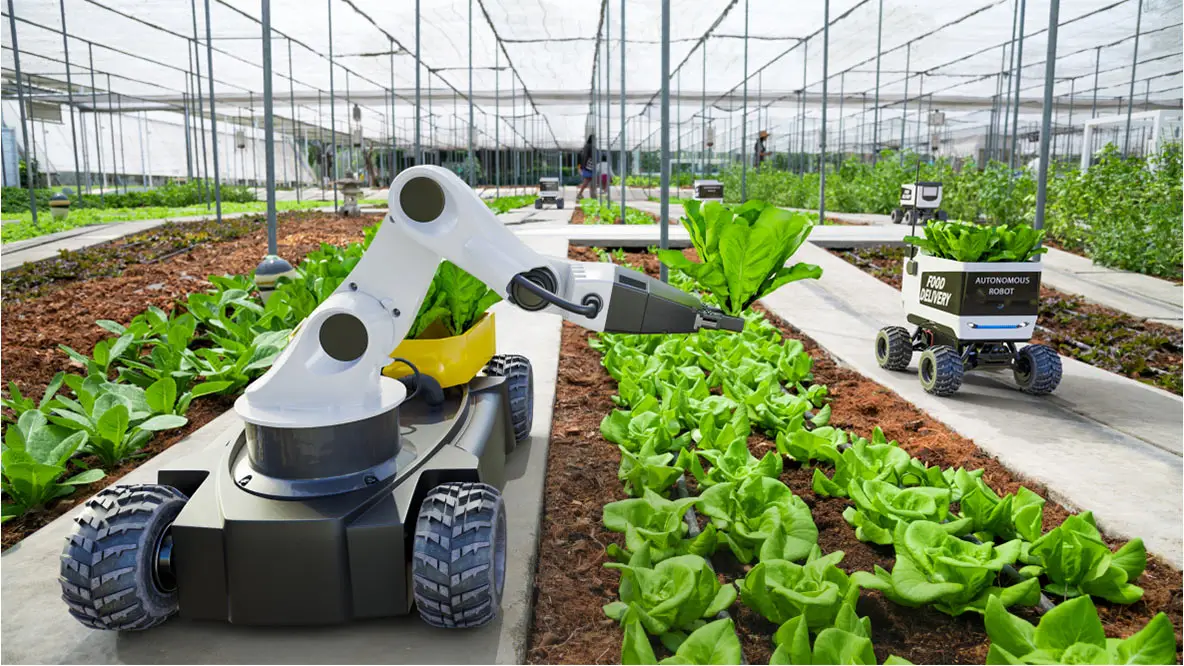5G for Agriculture
Agriculture is no doubt the most important industry any country has. Without farming and agriculture, a nation would not be able to feed its people. In India the idea of technology in agriculture seems like a faraway dream given the current state of resources, whether it is electricity, modernized irrigation systems, or even transport of harvested crops. But 5G can change all this. 5G’s far-reaching, robust and reliable network coverage, a variety of technologies can be provided to farms and fields even in the furthest regions of the country.
5G powered agriculture use case
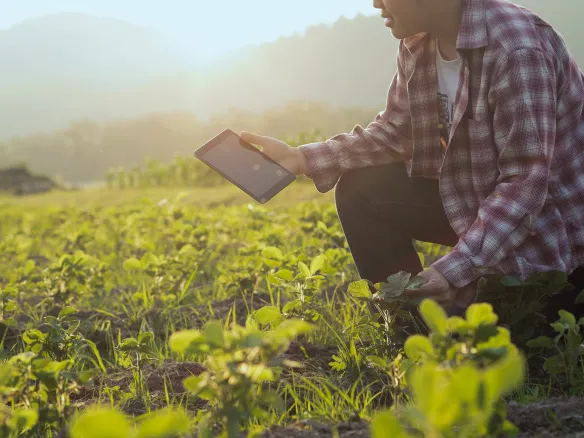
Crop health
Internet of Things (IoT) supported on a 5G network can be used to monitor factors like soil conditions, temperature, contaminants in the area, water quality and so on. The quick transfer of data with AI being able to detect anomalies can help protect crops as early as possible. Predictive analysis of weather conditions and corresponding yields can also help farmers plan better for each season. 5G-powered drones are a quick and efficient way to monitor crops regularly to ensure that they are healthy and not showing any signs of distress. Drones can also help to identify if crops are ready for harvesting or need more time than usual.
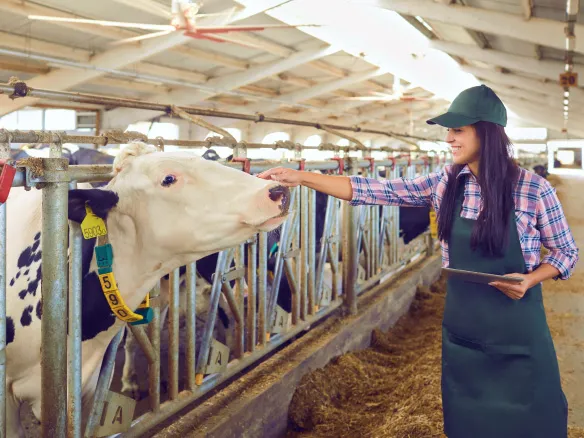
Livestock health and tracking
Animal barns and pens can be fitted with IoT sensors to keep track of not just their behavior but also their environmental conditions. This helps to ensure that any unhealthy animals are removed as soon as possible from the enclosure to prevent spread of diseases. Healthy animals can be checked and even given preventive treatment. Smart trackers that are connected to a 5G network can help to monitor grazing herds for longer distances and ensure that they are always accounted for.
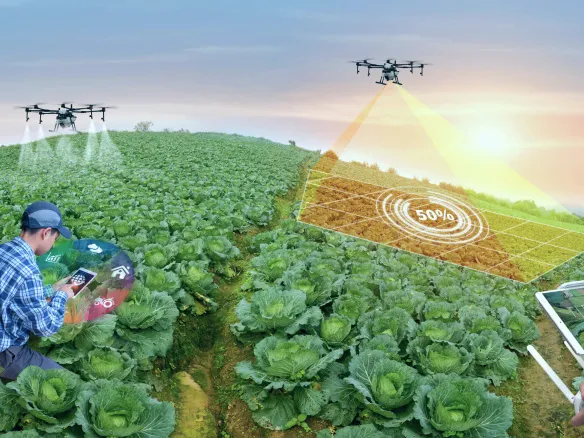
Drone spraying
Cameras with smart sensors can be fitted on drones to identify areas where weeds are more concentrated. Accordingly, these drones can also be fitted with herbicide sprayers and cover large areas of weed contamination in a short span of time. Drones are also useful for spraying insecticide or other substances to keep crops healthy.
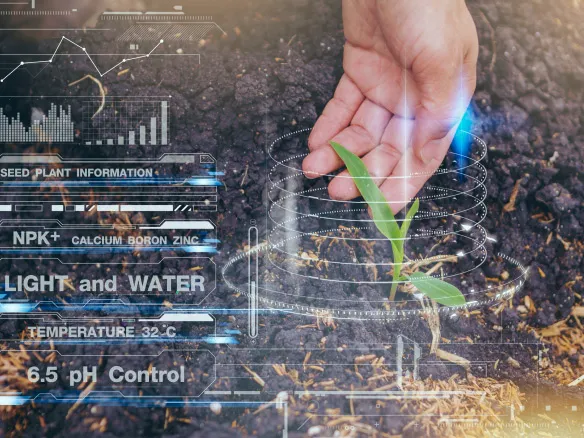
Precision farming
A single farm can grow a variety of different crops in different fields. Drones fitted with smart sensors are capable of recognizing different crops and adjusting the amount of fertilizer/insecticide/herbicide that is required for those crops. Additionally, smart sensors in the soil can adjust water supply depending on the soil’s moisture content and the type of crops. Smart sensors can also examine other soil properties and inform a control unit about what actions need to be taken. For example, if the soil is running low on nitrogen, adequate amounts of a nitrogen-rich fertilizer can be added.
Insightful resources
Learn more on 5G technology through case studies, whitepapers and latest updates.
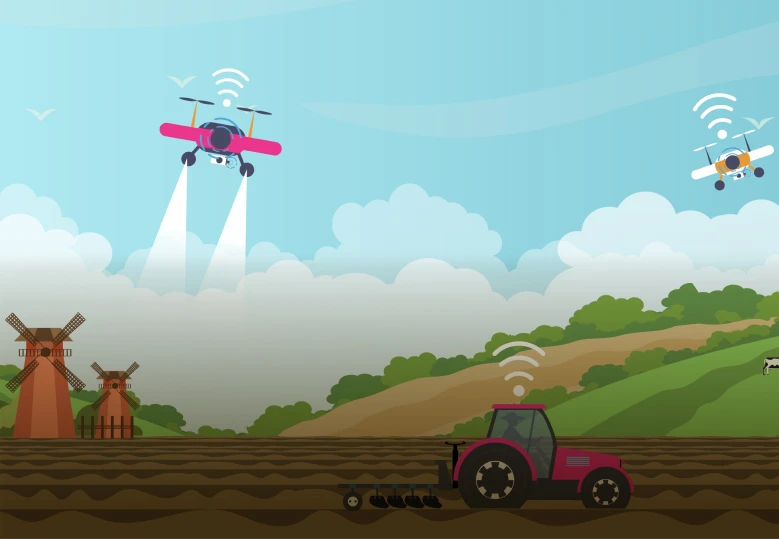
Use Case
5G for Agriculture
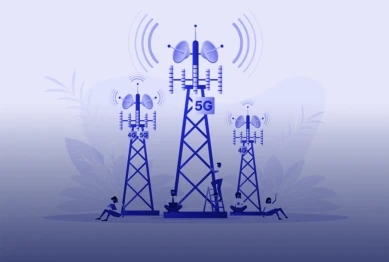
Infographic
Standalone architecture for True 5G experience
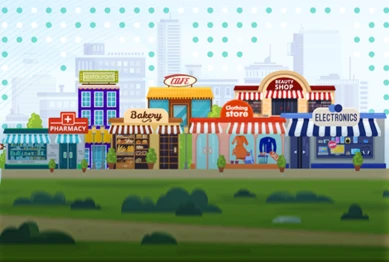
Infographic
Accelerate SMB's growth with True 5G
Want a callback?
Please share your details.
By continuing, you agree to our Terms & Condition
